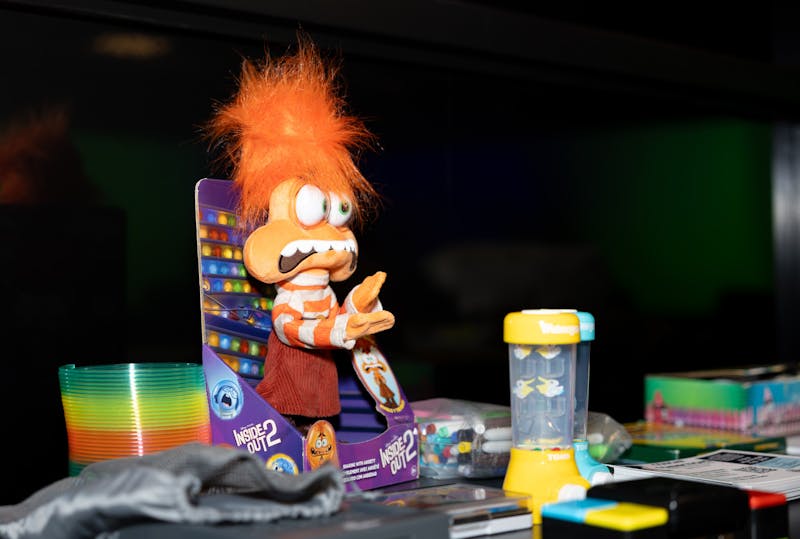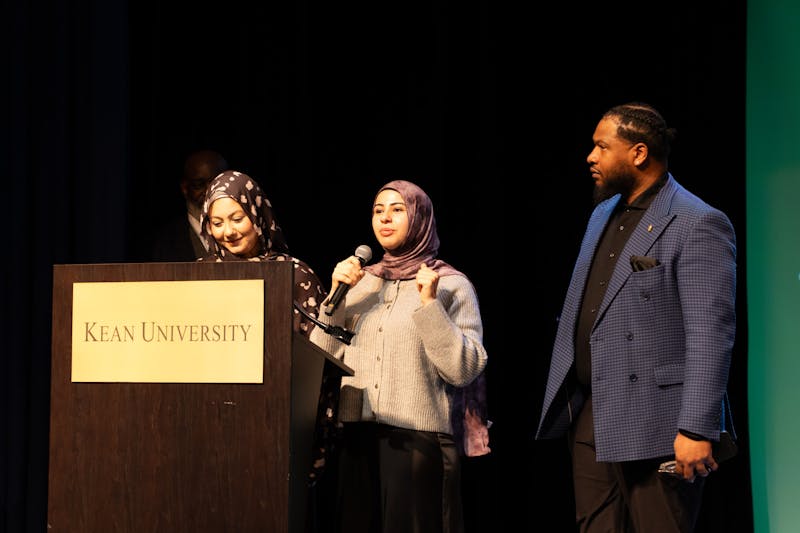Wàn shèng jié kuài lè! Or, happy Halloween!
People may wonder what goes on during Halloween at the Wenzhou-Kean campus, since there are a lot of Union Kean University students over there. In China, it is not common to celebrate Halloween. In fact, it is almost like a normal day for most people there.
Many students have midterms or tests around this time, so libraries will be packed with students studying and trying to prepare for the upcoming exams. Just a small number of people or groups go and dress up. Of course, how can anyone resist the temptation to dress up as something fun for the holiday? Some Wenzhou students will dress up along the other students in China.
Other cultures have their own way to celebrate time with family or honor the dead like Mexico's and other Hispanic cultures' Dia de los Muertos, or Day of the Dead. The Chinese have the Hungry Ghost Festival, the Qing Ming Festival or the Spring Festival to honor the dead. While America's Halloween is not necessarily a religious holiday, other countries spend their day for the dead religiously.
The Hungry Ghost Festival occurs on the 15th day of the seventh Chinese lunar month. This year, Hungry Ghost Festival took place on Tuesday, Sept. 5, 2017. Next year, it will occur on Saturday, Aug. 25, 2018. During this holiday, the Chinese will honor the dead by going paying respects to their ancestors.
According to China Highlights, the seventh month of the lunar calendar is considered the scariest month of the year, because there is an ancient belief that ghosts are let out of Diyu, or hell in Chinese mythology, on the first day of the seventh month. The seventh month is called the "Ghost Month" (鬼月 Gui Yue), and the whole month is when ghosts are out and about traveling around the country, looking for entertainment. Many people try to avoid doing anything dangerous during the month, such as swimming or being out alone at night since the ghosts actively search for those alone. It is thought that the ghosts may attack their enemies or be angry or malicious.
There is a heavy belief that the ghosts of dead people can help or protect them, so if they were to make fun of their ancestors, bad luck will be bestowed upon them. Of course, it is up to every individual's personal belief. Some may believe it is superstition just like the superstition of bad luck in western countries. Unlike the last day of October for westerners, the last day of the seventh lunar month is a less-celebrated day. The gates of Diyu are closed up again, so people celebrate and observe this day differently.
Many people may burn paper money and clothing so that the ghosts can use them in their society in Diyu. In order to push the ghosts to leave in the right path, Taoist monks will chant. A common tradition is floating river lanterns that are thought to take or guide those ghosts back to their place.
In Hong Kong, there are two big theme parks, Ocean Park and Disneyland. These amusement parks have Halloween-themed activities people can take part in. Other big cities such as Beijing and Shanghai may have a pumpkin outside of shops, but it is very rare to see children trick-or-treat during Halloween, even if they are dressed up.
For those who want to know about Halloween words in Mandarin, here is a list full of vocabulary to learn:
- halloween (万圣节 – wàn shèng jié – lit. ten thousand saints festival)
- costume (服装 – fú zhuāng)
- mask (面具 – miàn jù)
- "trick-or-treat!" (不給糖,就搗蛋 – bù gěi táng, jiù dǎo dàn – lit. If you don't give me candy, I will play a trick on you!)
- candy (糖果 – táng guǒ)
- bat (蝙蝠 – biān fú)
- black cat (黑猫 – hēi māo)
- spider (蜘蛛 – zhī zhū)
- ghost (鬼 – guǐ)
- vampire (吸血鬼 – xī xuè guǐ – lit. blood sucking demon)
- skeleton (骷髅 – kū lóu)
- Frankenstein (科学怪人 – kē xué guài rén – lit. science monster)
- witch (女巫 – nǚ wū)
- mummy (木乃伊 – mù nǎi yī)
- zombie ( – jiāng shī – lit. stiff/numb corpse)
- werewolf (狼人 – láng rén – lit. wolf person)
- pumpkin (南瓜 – nán guā)
- jack-o-lantern (南瓜灯 – nán guā dēng – lit. pumpkin light)
- ghost story (鬼故事 – guǐ gù shì)
- haunted house (鬼屋 – guǐ wū)
- corn maze (玉米迷宫 – yù mǐ mí gōng)
- horror movies (恐怖电影 – kǒng bù diàn yǐng)
- Halloween party (万圣节晚会 – wàn shèng jié wǎn huì)
- happy Halloween (万圣节快乐 – wàn shèng jié kuài lè)
Enjoy your spooky night no matter where you are from!







